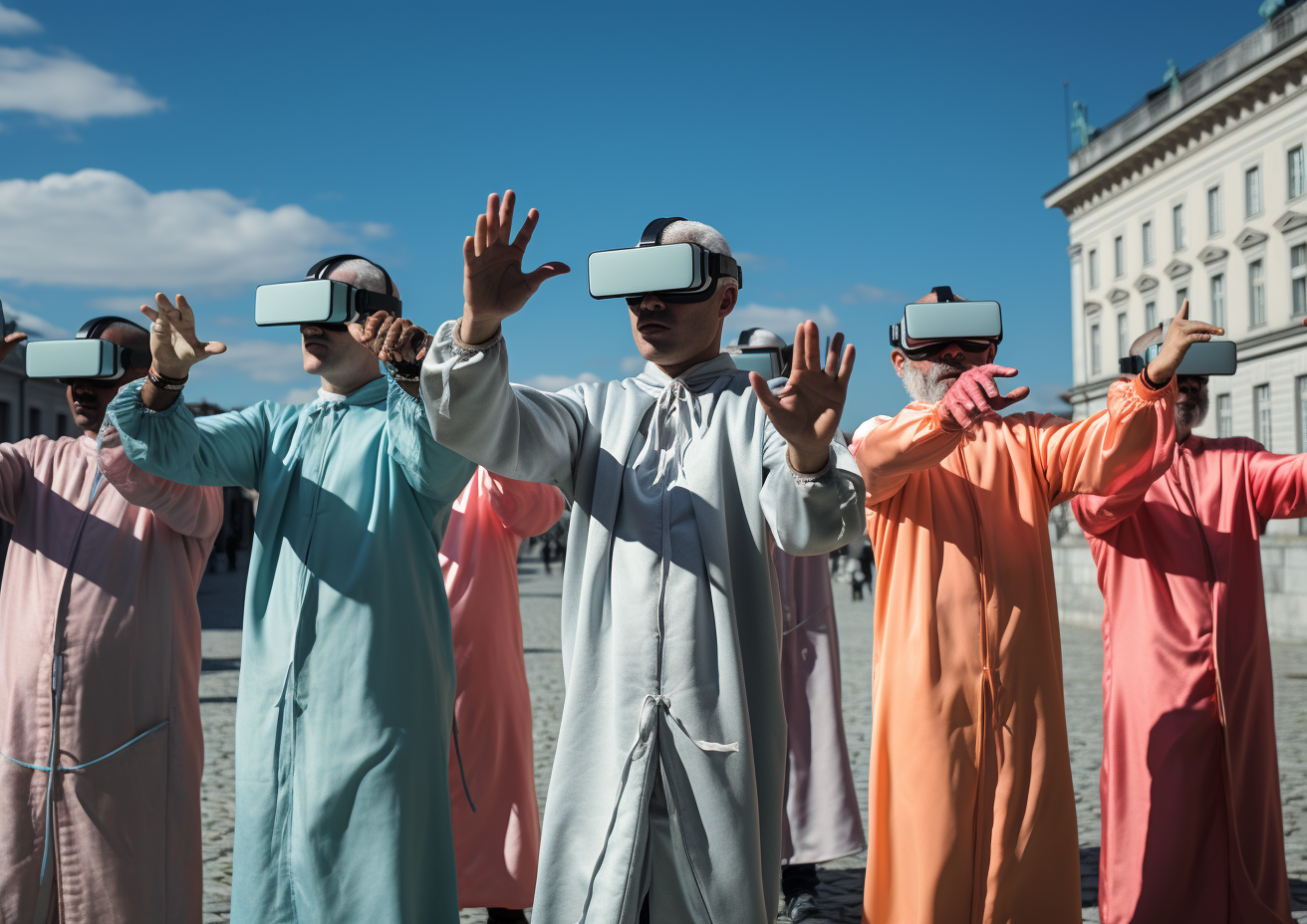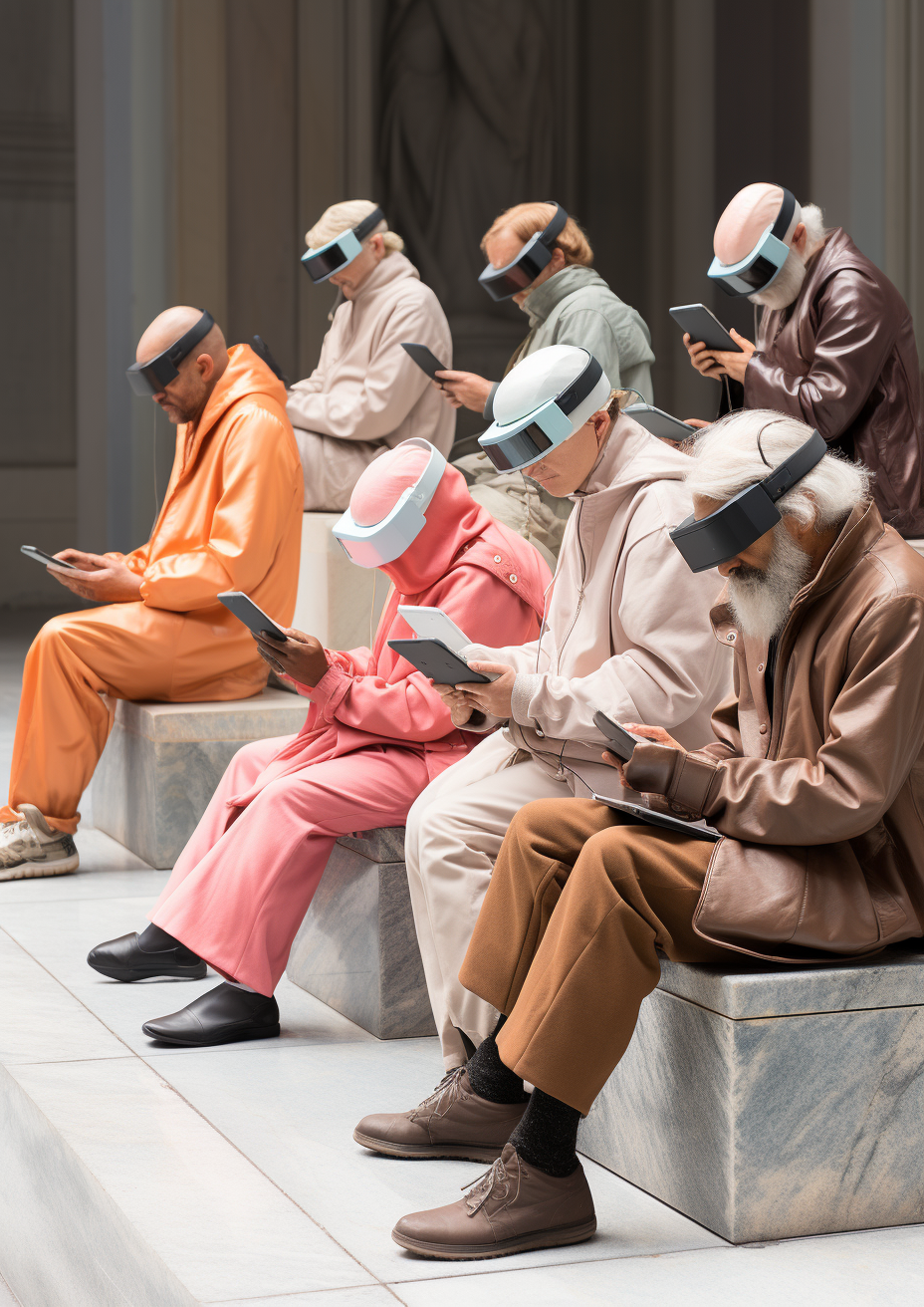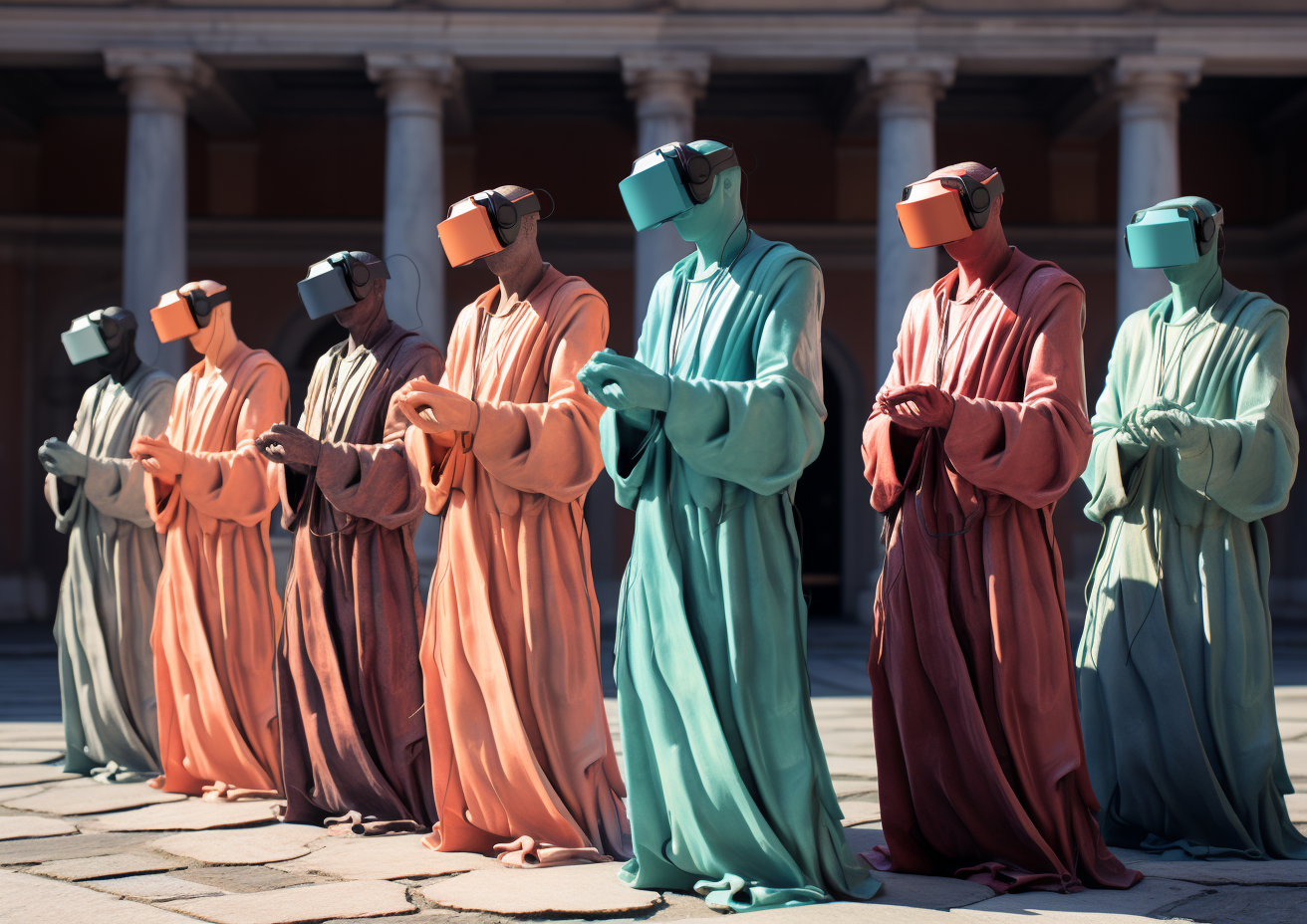08 / From Green to Screen
The digital age, with its vast potential and pitfalls, casts a new light on our age-old bond with nature. In an age of screens and algorithms, where does nature fit in?
Lennart: I’ve been thinking about how the digital revolution has impacted our relationship with nature. How do you see this relationship evolving?
Argos: Absolutely, Lennart. The digital revolution, often marked by the rise of the internet, smartphones, and social media, has brought about profound changes in almost every aspect of our lives. And our connection with nature is no exception.
Lennart: On the surface, technology has democratized information. Virtual reality and augmented reality have even allowed us to immerse ourselves in simulated natural environments. Today, anyone with an internet connection can virtually explore the Amazon rainforest or the depths of the Mariana Trench.
Argos: While digital tools offer a unique perspective, they can’t fully replicate the sensory experience of being in nature. However, they can serve as gateways, especially for those who might not have easy access to natural spaces.
Lennart: But I wonder, does this digital exploration truly enhance our understanding and appreciation of nature?
Argos: It’s a double-edged sword. Digital platforms offer a wealth of information, making nature more accessible to those who might not have the means to experience it firsthand. However, this virtual connection can sometimes be superficial. While we can watch a 4K video of a waterfall, it can’t replicate the mist on our face or the roar in our ears. There’s a sensory depth to nature that digital mediums can’t capture.
Lennart: I’ve also noticed that with the rise of smart devices, people are often engrossed in screens even when they’re outdoors. Could this be creating a barrier between us and the natural world?
Argos: It’s a valid concern. The omnipresence of screens can sometimes act as a distraction. Instead of observing the world around us, we might be more inclined to capture it through a lens or filter our experiences.
Lennart: And with advancements in artificial intelligence and machine learning, we’re seeing more tools that can identify plants, animals, and even stars. While it’s educational, do you think it might reduce the sense of wonder and curiosity?
Argos: There’s a balance to be struck. On one hand, these tools can enhance our understanding and appreciation of nature. On the other, there’s a risk of reducing our interactions with the natural world to mere data points. The key is to use technology as a complement, not a replacement, for genuine exploration and connection.
Lennart: I’ve also read about digital detox retreats, where people disconnect from technology to reconnect with nature. What are your thoughts on this?
Argos: Digital detox retreats highlight a growing awareness of the need to unplug and immerse oneself in the natural world. It’s a testament to the fact that, despite the digital age’s conveniences, there’s an innate human desire to connect with nature in its purest form.
Lennart:It’s reassuring to know that the pull of nature remains strong. As we move forward in this digital age, how can we ensure that our relationship with nature remains intact?
Argos: It’s about conscious choices, Lennart. Embracing moments of stillness, making time for outdoor activities, and using technology mindfully can help bridge the digital-natural divide. As with many things in life, it’s about finding the right balance.
Lennart: Wise words, Argos. It’s clear that while the digital age presents challenges, it also offers opportunities. It’s up to us to navigate this landscape mindfully, ensuring that our bond with nature remains unbroken.
Argos: Absolutely, Lennart. As we continue our journey, let’s keep this in mind, exploring ways to harmoniously blend the digital and natural worlds.









